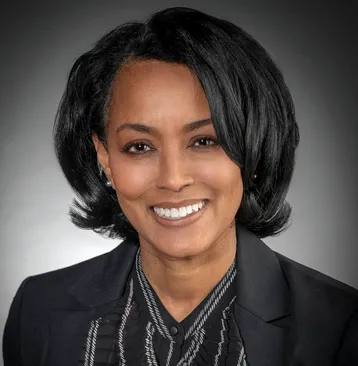Companies appear to be increasingly hiring experienced external candidates rather than promoting internal lawyers when selecting new general counsel or chief legal officers.
The growing preference for outside legal chief appointments at the largest U.S. corporations has been particularly evident in the last two years, according to data compiled by executive search firm Russell Reynolds Associates.
For example, the firm told Legal Dive that 46% of the 176 newly appointed GCs or CLOs at Fortune 500 companies from 2017 to 2020 were external hires.
By comparison, 61% of the 92 legal chiefs hired by Fortune 500 businesses from January 2021 through October 2022 were outside hires, Russell Reynolds Associates reported.
Experienced leaders
Legal search consultants said the quickly changing public health and economic conditions stemming from the COVID-19 pandemic, as well as increased regulatory scrutiny in many industries, have prompted more companies to seek GCs and CLOs with prior experience in those roles.
In turn, businesses often need to look outside of their legal departments for attorneys who have led in-house legal teams and understand what holding a high-pressure, executive-level position entails.
“Many CEOs feel more comfortable having somebody in the job who has done it before,” said William McKinnon, who leads the Americas’ Legal, Risk, and Compliance practice at Russell Reynolds Associates. “They'll have been through the battles and can provide experience and guidance that somebody who's stepping up into the role will not have on day one.”

Brandy Russell, a partner who leads Marlin Hawk’s Legal, Risk, and Compliance practice, also pointed to the pace of change in recent years when discussing why more companies appear to be turning to experienced outsiders.
“There are risks that come with putting the wrong person in the role, so it's always a little bit more comforting to look to somebody who has already weathered a lot of storms,” Russell said.
Hiring a veteran legal chief also gives company leadership confidence “the new GC or CLO will be an effective leader through whatever changes may be coming down the pike,” she said.
Of the 56 external candidates hired by Fortune 500 companies for legal chief posts since the start of 2021 through this October, 35 had prior experience in such roles, a 62.5% rate, according to Russell Reynolds Associates.
Outside hire examples
Fortune 500 companies that have hired experienced legal chiefs from outside their organizations this year include HP, Intel and General Mills.

In July, April Miller Boise joined Intel as its executive vice president and chief legal officer. She previously served as CLO at Eaton, CLO at Meritor and GC at Veyance Technologies.
“With more than 25 years of experience across global markets and several industries, April is the rare combination of innovative business leader and talented attorney,” Intel CEO Pat Gelsinger said when the hiring was announced.
Julie Jacobs joined HP as its chief legal officer and general counsel in October. She previously held legal chief roles at Yahoo, Verizon Media and AOL.
Additionally, Karen Wilson Thissen joined General Mills as its general counsel and corporate secretary in June after spending roughly 17 years at Ameriprise Financial, where she most recently served as GC and EVP.
High-growth technology companies
McKinnon said companies experiencing significant growth are also often among the businesses that seek outside candidates who have experience as GCs or CLOs at larger organizations.

For example, Russell Reynolds Associates recently reviewed the professional backgrounds of 52 general counsel at high-growth technology companies and reported that 56% were external hires.
“Outsiders can be selected to bring the necessary expertise to organizations undergoing transformation, which many high growth companies are experiencing,” the web article said. “For instance, a $1B company looking to grow 10x in size may want to hire someone who knows what a $10B company looks like in terms of structure, business model and governance.”
McKinnon also highlighted that as tech companies expand, they face added complexity and increased government scrutiny. The general counsel or chief legal officer at these businesses is typically one of the key company interfaces with investors, clients and regulators.
“Bringing in GCs who have been through hearings, investigations and a high-degree of scrutiny gives the company a lot of comfort versus promoting somebody that they may really, really love but has not done that before,” McKinnon said.
Along those lines, 37% of GCs at high-growth technology companies in the Russell Reynolds Associates analysis had prior government experience compared to 21% of Fortune 500 GCs.
Advancing diversity
The search consultants also told Legal Dive that corporations are feeling pressure from their boards and the broader public to diversify their leadership teams.
So if the internal candidates for promotion to the GC/CLO slot are not diverse, companies may decide to instead look outside of their organizations, McKinnon said.
Roughly one-third of general counsel hired by Fortune 500 companies in 2021 were ethnically diverse and nearly half were women, according to Russell Reynolds Associates.
“We've seen a remarkable uptick in diversity efforts within GC recruiting,” McKinnon said.

Succession plans
Even with the shift among Fortune 500 companies toward hiring external candidates, search consultants said they anticipate internal promotions will remain an attractive option for many large corporations.

Russell from Marlin Hawk noted that large companies have bigger benches of talent to choose from when selecting a new legal chief than smaller businesses. They are also more likely to implement succession plans that allow internal candidates to get the relevant experience needed to eventually become GCs or CLOs.
Russell said these plans typically include providing potential successors a chance to lead various teams that report into the general counsel.
Additionally, succession plans frequently entail offering in-house lawyers the chance to gain exposure to different subject matter areas, as well as develop connections to important stakeholders in other business functions and geographic regions.
“When the opportunity opens for someone to be promoted into that scope of position, they've had the exposure internally to get the support and buy-in of the leadership team and of the business unit heads to be a credible, supported successor from the business perspective,” Russell said.
Internal hire examples
Fortune 500 companies that promoted their legal chiefs from within in 2022 included Johnson & Johnson, Verizon and New York Life Insurance.
In October, Elizabeth “Liz” Forminard became J&J’s general counsel after previously serving as GC across each of the healthcare giant’s Pharmaceutical, Consumer Health and MedTech sectors during her 16 years with the company.
Also in October, Vandana Venkatesh was promoted to executive vice president and chief legal officer at Verizon.

In her 20 years at the company, she has held a variety of leadership roles supporting the Enterprise, Public Sector, Information Technology and Sourcing business units, as well as Verizon Consumer Group.
“Vandana is a proven leader with extensive experience across a variety of legal functions and business units and will be a key member of our leadership team during this transformative time,” Verizon Chairman and CEO Hans Vestberg said at the time of her appointment.
In early October, Michael McDonnell was named the GC at New York Life. McDonnell, who joined the company in 2013, had most recently served as New York Life’s senior vice president, deputy general counsel & chief insurance counsel.
Smaller companies
Meanwhile, smaller companies with leaner legal departments have fewer potential successors and likely larger experience gaps between the legal chief and other personnel, according to McKinnon. This results in many of them choosing external candidates.
For example, McKinnon said Russell Reynolds Associates does a good amount of work helping private equity firms with $50 million to $300 million in revenue retain GCs or CLOs. Even if these companies happen to have in-house counsel, such as mid-level commercial lawyers, these attorneys are typically not ready to step into an executive-level role, he said.
However, Russell highlighted that lawyers working on smaller legal teams often gain a wide array of exposure “both in terms of the subject matters that they're covering from a legal perspective and then also in terms of the stakeholders they are engaging across the company.”
This varied experience can position them well to step into GC or CLO roles, including newly created ones.
“Just by virtue of needing to be adaptable and needing to be a generalist in their approach to providing legal counsel in-house for these leaner departments, they'll be well set up for that kind of succession,” she said.











